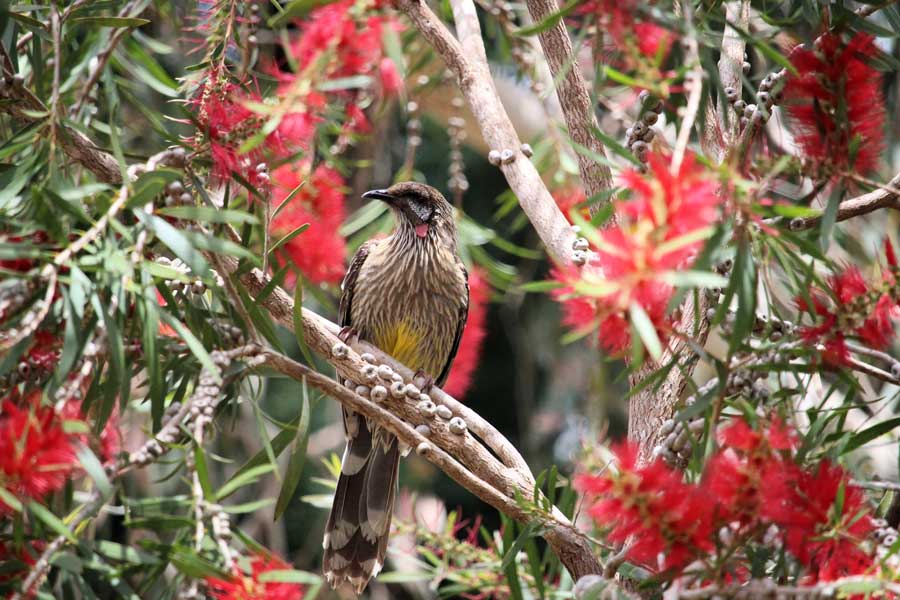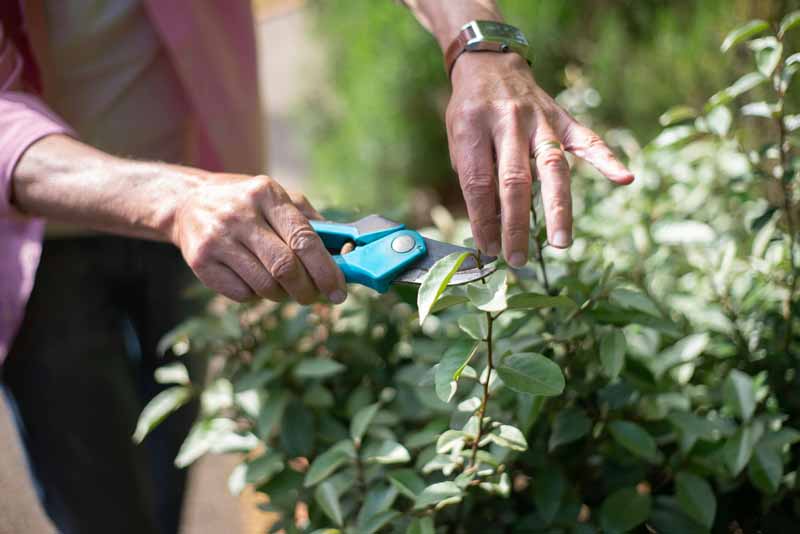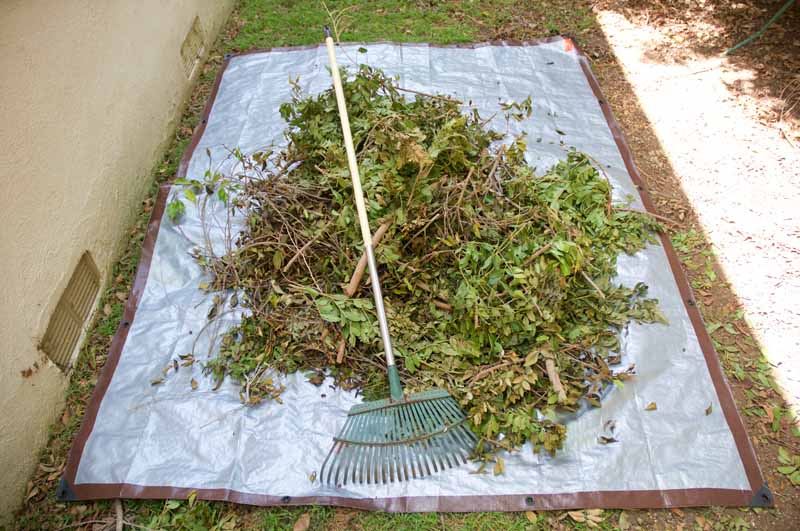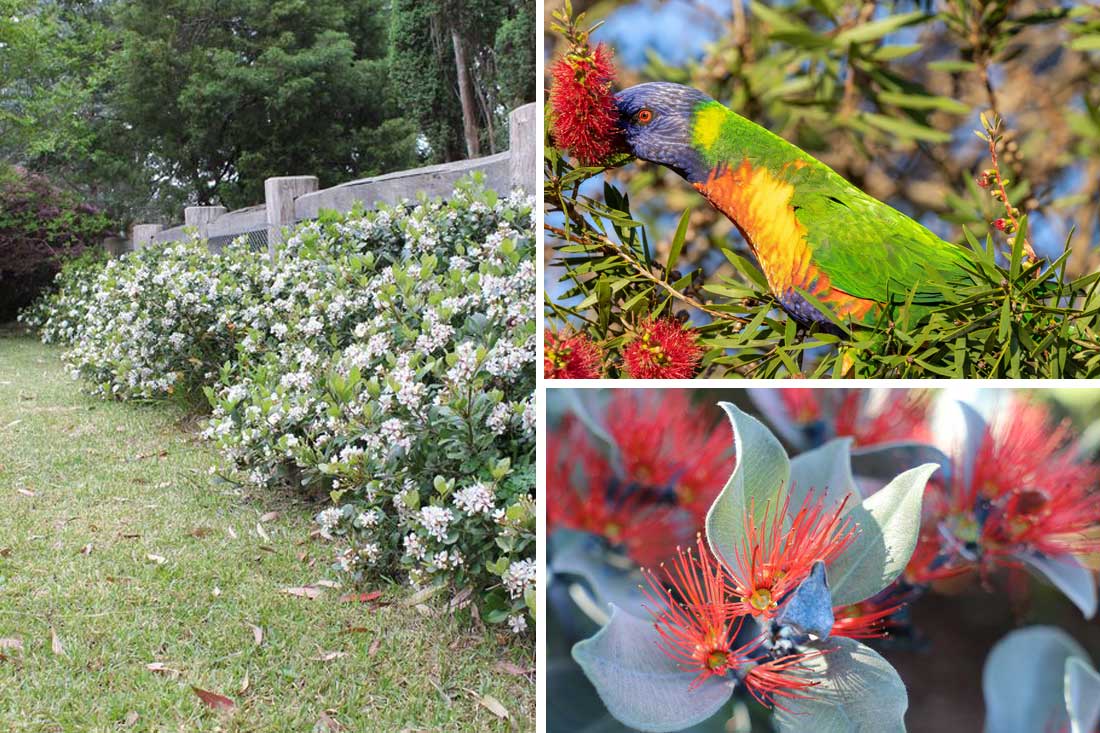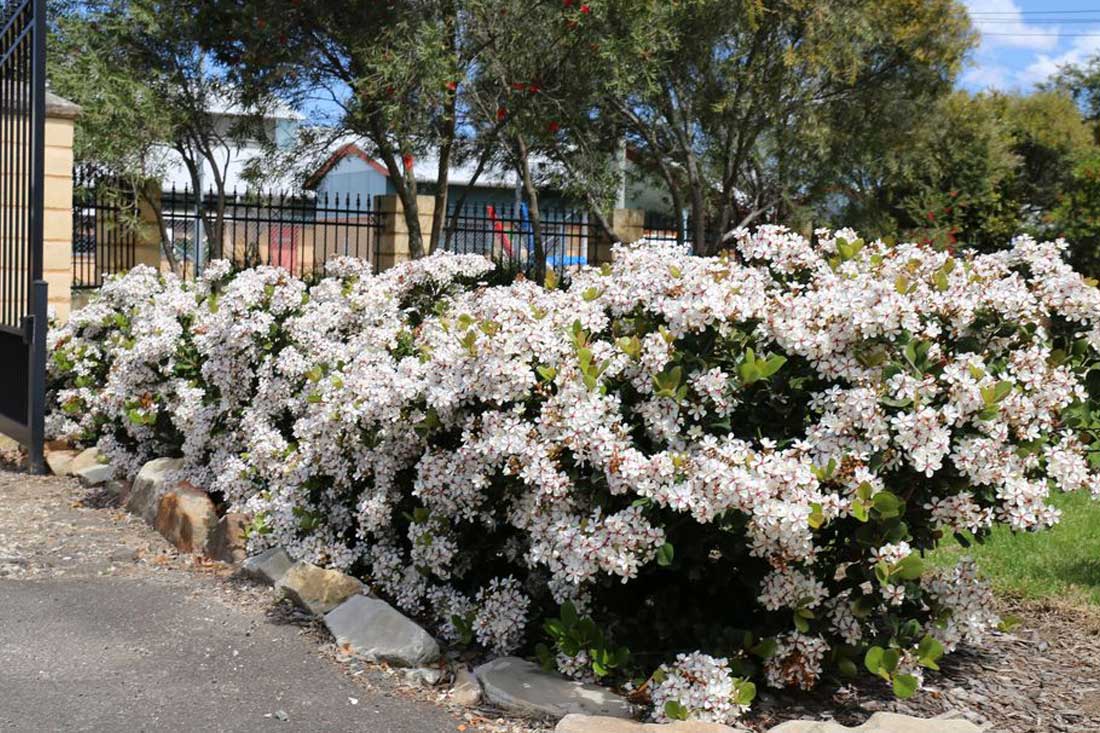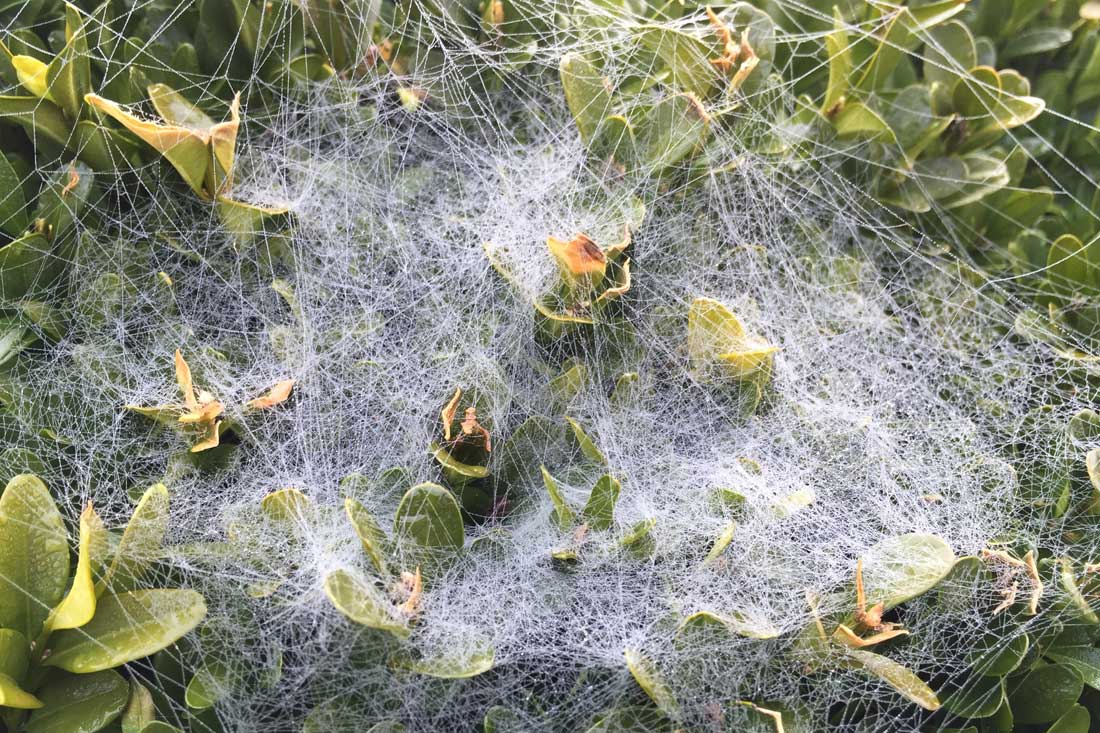As you stroll through a thriving Australian native garden, the sight of flowering plants teeming with birds is a joy to behold. These plants serve as more than just a feast for the eyes; they play a crucial role in attracting and supporting our native bird populations.
This article will explore seven of the most abundant Australian native flowering plants that are particularly enticing to our feathered friends.
This red wattlebird is very much in its happy place on this callistemon.
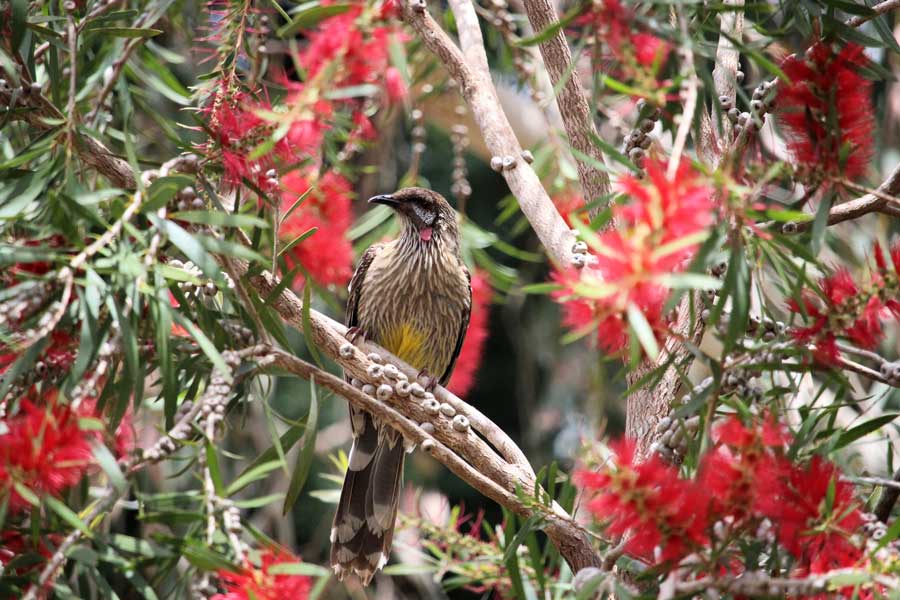
Importance of Native Flowering Plants to Birds
Role in the Ecosystem
Native flowering plants make a significant contribution to Australia’s rich biodiversity. They serve as a food source for birds, offering nectar, pollen, seeds, and fruit. Additionally, these plants provide shelter and nesting sites, contributing to the survival of many bird species.
The insect life attracted by the flowers on this list also provides a crucial food source for insectivorous birds.
While this article focuses mainly on flowers as a source of food for nectarivorous birds, it’s important to note that birds have many requirements beyond simply a source of nectar and pollen.
Benefits of Planting Abundantly and Diversely
A diverse range of native flowering plants in your garden can help sustain certain local bird species. Some species of plants attract specific bird species, while others are much more open to broad range of pollinators.
In this article, we’re focusing on native plants that flower prolifically and provide nectar for a broad range of pollinators.
By choosing these plants as well as other locally indigenous plants, your biodiverse garden can help mitigate threats faced by native birds, such as habitat loss and climate change.
Most Abundant Australian Native Flowering Plants for Birds
Bottlebrush (Callistemon spp.)
The bottlebrush plant, named for its cylindrical, brush-like inflorescences, is a common sight in many parts of Australia. It typically thrives in well-drained soil and full sunlight or partial shade. Its vibrant red, yellow, green, white or pink flowers, rich in nectar, are a favourite among birds like honeyeaters and lorikeets.
Banksia (Banksia spp.)
Banksias are iconic Australian plants with distinctive flower spikes and fruiting “cones”. They’re hardy but prefer low phosphorous amounts so use native fertilisers for these plants. The nectar-filled flowers attract a range of birds, including cockatoos, parrots, and honeyeaters.
Grevillea (Grevillea spp.)
Grevilleas are evergreen shrubs with unique bird-attracting flowers that bloom year-round. Their nectar-rich flowers are particularly attractive to honeyeaters and spinebills. Like banksias, grevilleas prefer a native fertiliser.
Lilly pilly (Syzygium smithii)
Lilly pilly is a popular native plant known for its glossy foliage and fluffy white or greenish flowers. It thrives in a variety of conditions, from full sun to shade, and in different soil types. Birds, including rainforest pigeons and fruit-eating species, are attracted to its small, berry-like fruits that follow the flowers.
Kangaroo Paw (Anigozanthos spp.)
Kangaroo Paw, named after the shape of its flowers, is an iconic Australian native plant. It thrives in well-drained soil and full sun but can tolerate light shade. Its vibrant, tubular flowers are filled with nectar, attracting honeyeaters and other nectar-feeding birds.
The eastern spinebill, with its long, skilly beak, is perfectly adapted to draw nextar out of kangaroo paw’s tubular flowers.
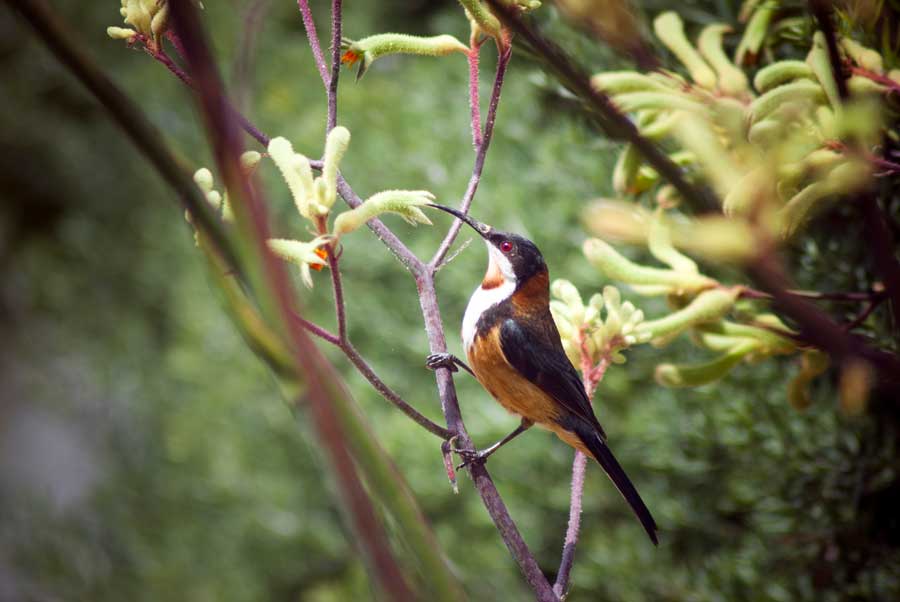
Wattle (Acacia spp.)
These hardy plants can survive in a variety of conditions, from arid regions to rainforests. Their bright, fluffy yellow flowers are a food source for many bird species, including parrots and honeyeaters. And the seeds of many species are grazed upon by various wildlife.
Eucalyptus (Eucalyptus spp.)
Eucalyptus trees are quintessentially Australian. They’re versatile, with varieties growing in various climates and soil types. Besides providing shelter, their flowers produce abundant nectar and pollen, attracting a wide range of birds including honeyeaters, lorikeets, and rosellas.
Conclusion
Planting a variety of native flowering plants not only beautifies your garden but also invites a diversity of birdlife, contributing to the preservation of Australia’s unique biodiversity. Whether you have a sprawling backyard or a small balcony, incorporating these plants offer our feathered friends a sanctuary filled with food and shelter options.
So next time you’re planning your garden, consider adding some of these bird-friendly natives. Not only will you be supporting local wildlife, but you’ll also be rewarded with a colourful, lively, and song-filled garden.

